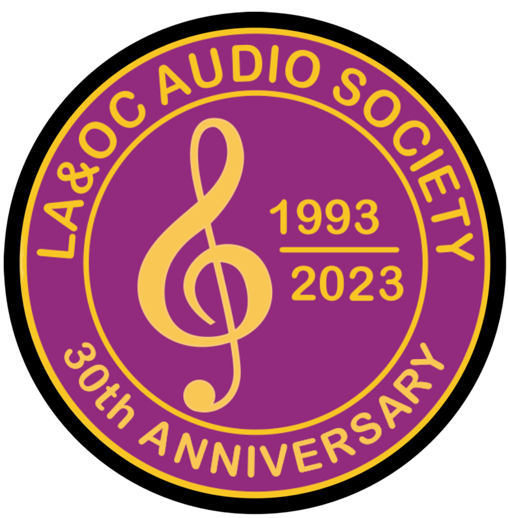
Qobuz vs Tidal


This is a rather interesting topic. Two music streaming services with two different approaches in terms of content and audio fidelity. Tidal is the preferred choice for the mainstream audiophile here in the United States while the rest of the world gets Qobuz. Since I joined the closed beta of Qobuz’s streaming service, I now have a unique opportunity to compare the two services with their distinct advantages and disadvantages.
Pricing Tiers for Qobuz.
The website is quite clear, but I found that reading about it here is somewhat better as I can explain what I think about the pricing structure (I know that this opinion can be construed as Subjective. Sorry about that).
– Premium Streaming at $9.99/monthly. Offers 320kb/s MP3 streaming. Great for music lovers and a good place to start before taking the plunge into CD-Quality 16-bit/44.1-KHz FLAC streaming.
– HiFi Streaming at $19.99/monthly. An upgrade to 16-bits and 44.1-KHz sampling rate FLAC streaming. Great for audiophiles that are seeking to hear more details in their audio albums. It is also a great compromise of having great audio fidelity without having to add to the expense in both the listener’s data speeds and caps.
– Studio Streaming at $24.99/monthly. As it is described, Studio Master streams up to 24-bits and 192-KHz sampling rate. The listener is receiving the highest fidelity possible and is virtually bit-perfect to the downloads from HD-Tracks and other high-resolution music download services.
These prices are on Qobuz’s website, but I feel that you have noticed I didn’t list the highest tier of their streaming services. The Sublime Streaming package delivers a yearly subscription tier in the hopes of locking the listener in with one additional perk, which is to allow the user discounted high-resolution album downloads valued at $299.99/annually. I can see the value of the top tier streaming package if the desire is to listen before purchasing the entire album to add into the permanent collection. I like this idea if it weren’t for the per seat pricing structure.
The prices allow for up to 5 devices per user subscription. This means each user at (Example) $24.99/month can have up to 5 devices registered under the same account. This is great for the user, however that means that if the user chooses to share their account access for different devices, all changes to their playlist and preferences will be shared across the devices. It makes sense for a family, but not if shared across the friend(s) space. Those are my thoughts though as Qobuz offers a level of performance that supersede Tidal as the newly minted streaming service offers true Masters performance without compromise.
Read more for a better understanding of what I mean.
Tidal and MQA?
MQA or Master Quality Authenticated serves as way to package master quality audio files in a unique format that delivers a true audiophile performance with nearly the same streaming bandwidth as with standard Red Book format FLAC audio. MQA provides unparalleled audio performance without requiring too much bandwidth overhead. In simple language, it is the ability to deliver Master Quality performance while remaining quite small in file size. This is great for those whom have bandwidth caps with their mobile devices. It is a healthy compromise of high fidelity without having large file sizes.
I personally enjoy listening from Tidal and MQA audio from the service because I am able to enjoy true master level recordings without consuming massive amounts of data. For those whom don’t have unlimited data plans, MQA will at least provide the opportunity to listen to high-resolution (MQA Core Decoder in Tidal) while consuming nearly the same amount of data as with normal compression FLAC.
Having experienced the listening performance of Tidal and MQA, I have found that the sheer variety of choices of MQA titles specifically allows for me to have this as my primary choice of streaming music. With the latest changes in the Tidal application for Android OS, the ability to enjoy MQA with or without hardware support is quite good (The MQA Core Decoder is now made available in the Android OS for those whom their devices are not equipped with hardware MQA decoding). I personally have one device that has hardware MQA decoding, which is the LG V30 smartphone. The combination of MQA and the ES9218p SoC allows for a truly immersive listening experience. If it weren’t for this combination of two high-performance hardware integrated within the single device, I wouldn’t have written the review in relation the LG V30 as a portable digital audio player.
It is those simple things in life is what allows for me to conduct a written review about fine audio listening.
The Qobuz Experience..
This is a rather loaded topic.
I have had the pleasure of listening to streaming audio from this platform whilst living in Germany. This service delivers true Master Quality recordings with normal compression algorithms (FLAC set to Normal Compression). There is one feature I really like with Qobuz, which is the ability to purchase the album that he/she is streaming. The price of the album depends on the quality of the recording. A regular, Red Book Audio CD recording at 16/44.1-48KHz averages about $16.00. High-resolution recordings higher the Red Book varies from $20-30.00 per album. It is a bit more than with HD-Tracks or AIX, but I can listen to the album in full before purchasing it for my collection.
And when I say loaded topic, I basically mean that with Tidal MQA versus Qobuz master quality recordings, an audiophile can simply argue that MQA is better than even the high-resolution FLAC files. This is where a debate may ensue if I talk about this further. As a person whom understands the technical and physics of the audio wave form, I can say that MQA is very close to the Master recording, but it depends heavily on the equipment surrounding the MQA decoder, if any. This topic will head to my other article “To MQA or not to MQA? That is the Question”.
My Listening Impressions.
Tidal MQA is an interesting animal when it comes to objective listening. I happen to have a device that is capable of experiencing the full potential that is MQA with desktop systems that are able to also unlock nearly the full potential of the algorithm. Using one album that I quite fond of, “Homecoming, A Scottish Fantasy” by Nicola Benedetti. There is a sonic quality when listening to the MQA version of this album including the resolution and musical nature of the composition.
The music sounds a little fuller with rich details in the midrange and the transitions to upper frequency registers. The delicious sound of the violin (played by Nicola Benedetti) comes through in a way that mesmerizes and keeps the listener engaged till the end. It is quite good as it is until I started listening to the same album through Qobuz. There is a reference quality to the audio that is both engaging and neutral. Gone is the midrange punch and warmth, but the sound-stage presence is quite wide with a bit more treble and low-frequency depth.
From my understanding, MQA has special filtering algorithms that brings out the best in the music presented, especially when exceeding the boundaries of Red Book Audio CD. Qobuz delivers high-resolution streaming without compressing the FLAC file further. So basically, the latter service delivers the highest fidelity without any special compression/folding algorithms. From a listening standpoint, this is the most ideal as the listener is receiving the highest audio performance with virtually no discernible compromise. This makes sense only to those whom have very high bandwidth transfer speeds, but for the majority for whom are in the 25Mbit/s range, this can prove to be rather a touchy topic.
If viewing this topic from a bandwidth perspective, then Tidal MQA offers a clear advantage, however when there is no restriction of transfer bandwidth, then Qobuz a bit better overall. I can hear many micro details with the Qobuz version over Tidal MQA. I understand this is more subjective than objective, but rest assured when Qobuz reaches the United States from a stable platform rather than in Beta form, I can trust that many true audiophiles would jump at the chance of trying out and paying for an audio experience close to master quality.
Which one Would I Choose?
I enjoy both streaming services, but I would choose Tidal over Qobuz mainly because of the expense. The trial service that I am on ends the 22nd of February 2019 and afterward, the monthly cost is $25.00. I am already paying for the family pack with Tidal at $30/month, but this allows for up to 5 users total to have everything Tidal delivers including MQA. Qobuz is a single user service with the ability to allow the user to purchase an album that they are currently streaming. This is the main differences between the two streaming platforms.
There is another feature that I enjoy more than what is offered with Qobuz. When purchased with the Tidal Family Package, each user can connect up to 5-devices per user/seat. This also means that each user has their own individual listening tastes, playlists, and features catered to their listening preferences. Qobuz currently doesn’t offer a Family Streaming package and each user/seat has similar flexibility in having the ability to connect up to five devices.
My Final Thoughts of the Hour..
All music streaming services serve as a way to connect to music and people in a more community sort of way. Sharing the music among other peers and friends sets the stage to bettering each other’s music listening preferences and may also connect us on a more personal level. Sounds strange and it usually is with my thoughts. Pure Analog listening use to be the original method of listening to music (it still is though for those whom reached a level where they are most comfortable at with their chosen system). Now we are heading to a much more saturated realm of digital-to-analog listening. Streaming services have opened the door to new possibilities and I have no doubt that the prices will come down to where all music lovers will enjoy this level of performance.
For now though, Qobuz will mainly serve those whom are seeking the highest fidelity of music listening regardless of cost. And with the ability of purchasing music directly from the application without resorting to music purchases from third-party sites such as HD-Tracks, NativeDSD, etc.. Qobuz may bring the listener closer to the magic 99.997% audio fidelity, but Tidal Masters is on the heels of the level of performance exuded by Qobuz with the exception of not having the ability to purchase albums from their streaming site. They may have that ability in the foreseeable future including the ability to download MQA albums, but for now I am quite content in the streaming service. I personally find Tidal to be a very reasonably priced high-fidelity streaming audio service.
Have a Great Week and Year.
Ying Kit Lee – Editor of “The Outer Limits of Audio”
